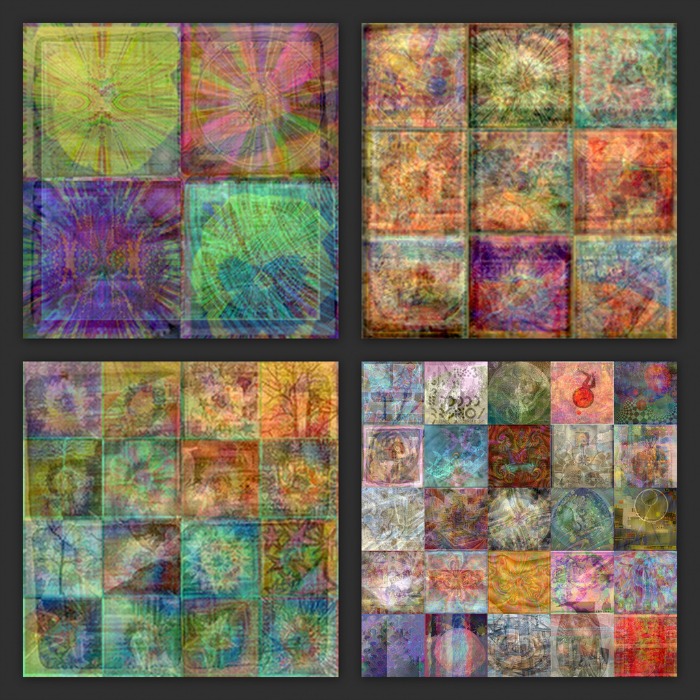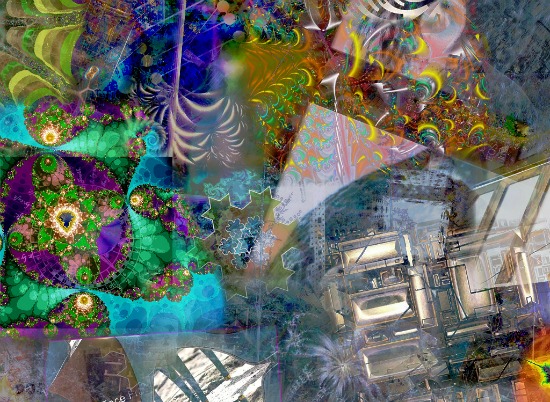Earlier this week, my school had a “Maintaining Our Commitment to Social Justice” day including a keynote address and three workshops of our choice amongst a selection of workshops.
It was a very informative and interesting day and I felt very appreciative of my school having hosted such an event. Kalima DeSuze, an African American Latina professor from Columbia University, gave a passionate keynote address about social work and social justice
Two personal stories that Kalima shared that stuck with me were how she became an activist and a black feminist already as a child. The first story was when she was three years old and she had the habit of becoming silent and not speaking when she felt slighted by an adult. She had basically learned at a young age that her only power as a child was her voice; hence she made sure to withhold it until the adult who had wronged her apologized.
The second vignette she shared was how her father decided when her brother was 9 years old and she was 5 years old to give them an allowance but he gave her brother $5 and her, only $1. She somehow realized at that age that she was given a smaller allowance not because of her age, but because of her gender. So how did she respond? She tore up the $1 and gave it back to her father in protest of not being given the same amount as her brother.
The main message that this wonderful speaker conveyed so eloquently was that as social workers, our challenge is to find our sense of power (we all have some power) and then do what we can to transform the system. “The personal is political.”
Kalima proceeded to then give one example of how social workers who are providing direct services may choose to connect their clients/patients with organizations that are working on their behalf to address racial, gender and ethnic inequities as part of their respective treatment plans. By taking such a step, we would be helping to educate the disadvantaged and oppressed as well as assisting in the process of changing the system.
After Kalima’s inspiring keynote address, I went to a workshop on Spirituality. The essence of this workshop was for us to broaden our understanding of what spirituality is so that it is far more inclusive than how it is usually defined and make sure to incorporate this in our work with clients.
Dr. Evan Senreich, Assistant Professor of Social Work at Lehman College, CUNY, proposed the following revised definition:
“Spirituality refers to a human being’s subjective relationship (cognitive, emotional, and intuitive) to what is unknowable about existence, and how a person integrates that relationship into a perspective about the universe, the world, self, moral values, and one’s sense of meaning.”
To gain an understanding of our clients’ spirituality, Dr. Senreich recommends that we ask our clients questions like: Do you believe in a higher power or God, or do you believe that things are more random? We could also ask: What do you think happens to people after they die?
Dr. Senreich also suggests that we note when a client makes any sort of reference to God or a belief such as “God-willing,” or “it was meant to be” and then take such opportunities to explore what the client means and what this says about how the client views his/her world.
Understanding a client’s spirituality, in turn, helps understand a client better. This, in turn, may impact both our choice and application of interventions.
This idea of incorporating the broader idea of spirituality into our work with clients makes a lot of sense. This reminds me of a podcast I had listened to a few months ago that had illustrated the importance of including this component with African Americans (see: Religion and Spirituality as a Source of Strength for African Americans).
This workshop takes that idea a step further and suggests that in fact, everyone, has some sense of spirituality, some feelings about their place in the world and how things work and that these feelings and understandings are important to find out.
Moving onto the second workshop, Koshin Paley Ellison, co-founder of the New York Zen Center for Contemplative Care presented “Connecting Empathy with Compassionate Functioning.” This was also a very interesting session, but it ended up being personally difficult for me.
After a brief breathing exercise, we had a discussion about the difference between empathy and compassionate functioning. Essentially, Koshin conveyed the importance of being able to provide empathic care for clients/patients while providing yourself with sufficient self-care.
Koshin also raised the idea of Jung’s shadow concept, the unconscious place that we don’t want to go. He explained the importance of our needing to know ourselves, to make sure that we do not manipulate our patients into making ourselves feel good.
He went on to say that all of us have the following three poisons (or shadows) of caregiving:
- Our feeling of lack of impact in the world (i.e., we don’t make a big enough difference in our personal life)
- Being a voyeur (lack of attention to our inner life)
- Healer/helper (desire to be a savior)
He then asked us take a few minutes to think about these 3 poisons and write our thoughts down.
Following this, we did another breathing exercise except that here Koshin took me by surprise… He asked everyone to partner up with someone that they did not know and to sit facing that person and then perform the relaxation exercise. As I was in this relaxed state, Koshin suddenly asks us to imagine that the person opposite us is going to develop cancer in the future.
In light of what is happening in my personal life, as mentioned in What Do You Do When a Loved One Has Cancer , this exercise felt too real and I essentially jumped up out of my seat and told Koshin: I can’t do this. This is too real for me. My X has cancer.
Koshin in a very calm voice told me that it’s good I told him, that it’s ok and he asked “What can we do for you?” I didn’t know what to do nor what to suggest. A part of me just wanted to run out of the room but I didn’t want to cause a scene.
I also felt uncomfortable with having stopped the class… Fortunately, a close friend of mine was with me in the class and she turned to me and asked if I wanted a hug. That was exactly what I needed and we hugged. That hug was immensely helpful and grounding…
After the hug, I went back to my “role” in the exercise which entailed imagining that our partner was going to die in the future and we were supposed to just be looking at our partner and not saying anything, but conveying empathy and caring via our eyes.
It was hard for me to get really into it because I had to maintain a separation between what I was being asked to imagine and what is going on in my real life but I tried my best for my partner’s sake. During the debriefing, I apologized for having disrupted the class…
Koshin said that I did the right thing, practicing compassionate functioning (taking care of myself) and then to my surprise, two classmates expressed appreciation for my having stopped the class. They had both lost their mothers to cancer a few years ago and my stopping the class was helpful to them to allow them to prepare themselves for the remainder of the exercise.
The class ended on this note which was a bit raw for me and then I had my third workshop to attend, “A Gestalt Therapy Toolkit for the Socially Conscious Practitioner.” This class was a great one to end with because it was much lighter than the first two I had attended and I needed something light after that whole cancer reality breathing scene.
Robert Mauksch, LMSW, from the Gestalt Associates for Psychotherapy, basically gave an introduction in this workshop to Gestalt therapy, a modality which I knew almost nothing about before and I have to say that it had really piqued my curiosity to delve into it some more now.
My key take-aways from this session were:
- our experience of self is always in process, changing (not static)
- who I am and how I experience the world doesn’t exist without the outside world
- who I am = the meeting of the organism and the environment being created at every moment
- social justice fits in with this via the contact (or cycle of contact); the ways in which the self interacts with the environment
- belief in creative adjustment – whatever happens in your life, you did the best you could to get your needs met
So this basically sums up the day…
Do you like this idea of a broader definition of spirituality? Do you agree that this is something to be explored and incorporated within one’s clinical work with a client? Or do you think that spirituality is a taboo subject?
Is there something that you would want to add regarding compassionate functioning or gestalt therapy? Please feel free to share any of your thoughts/reactions to the ideas raised here. I’d love to hear from you 🙂
Photo Credits: qthomasbower
Square Grid Blends (Tests)
Interesting Basics – Blue Square
Untitled
Curving the Trapezoid
Senreich, E. (2011). An inclusive definition of spirituality for social work education and practice.






Dorlee, what an amazing post.
I learned a lot by reading it, and the definition of spirituality by Seinrich may be the best one I’ve heard yet. Thanks just for that.
A book that you and your readers may find interesting is “The Birth of The Living God” by Anna Maria Rizutto. An excellent integration of spirituality and object relations theory.
Your experience in the gestalt workshop was so poignant to read about, and what occurred to me was that you had already been engaged in “living practice” of that meditation before you even sat down. One of the ideas I have enjoyed learning from Buddhism is that practice can happen outside the formal and traditional setting of sitting. It seems to me that you were doing such practice throughout the past several weeks as you breathed and lived your way mindfully through your experience with your X’s cancer.
Thanks again for the walkthrough of the event, you made me a little homesick for my grad program at Smith.
Mike,
Thanks so much for sharing your thoughts and reactions to this post.
I will look into the book you are recommending regarding spirituality. I would love to see how Rizutto integrates spirituality with object relations theory.
What an interesting interpretation of what I have been going through regarding my experience with my dear loved one’s cancer…
I can understand you missing your grad program…does teaching allow you to still feel part of the Social Work Grad School life (albeit differently)…?
I know that I will miss school terribly once it ends and see myself continuing to take classes after I graduate, be it at my school or elsewhere.
Thanks again,
Dorlee
Dorlee, sounds like these 3 workshops really had an impact on how you view yourself within the context of working with others. I admire your strength to get up and acknowledge your feelings of being overwhelmed by the meditation exercise and in turn, helped others to being able to continue on themselves. It just proves once again the power of one person’s voice and the ripple effect than it can have on others.
In regards to spirituality, I agree that it *may* be good to explore with clients only if it is brought up specifically. My personal views are to not address this area (spirituality) unless it is causing problems for my client.
Great post!
Sounds like a great day, although I found myself bristling at the exercise re: compassion for the person in front of you dying of cancer. Coming from a trauma-informed perspective I would have assumed there were people in the group who were coping with this issue and would have preceded this exercise with a statement giving people permission to opt out or choose a different focus–the topic is clearly one that could be too real for many people. I admire your courage speaking up the way you did, Dorlee. Clearly you spoke for others there who didn’t feel comfortable speaking up (probably more than spoke up).
I use the approach to spirituality articulated by your presenter with all my clients–this approach is identical to the one I learned in the addictions field, and I’ve found it to be a helpful one in practice with all my clients.
I love Gestalt methods, but don’t use them so much anymore, except for the two-chair/empty chair technique, so it was wonderful to read about it again.
Sharon,
Thanks so much for visiting and sharing your thoughts about the ideas raised in this post 🙂
I think many clinicians share your view of not exploring a client’s spirituality unless there is a specific reason to do so out of concern or fear that they may be venturing into a sensitive area…
During the workshop, Dr. Senreich also illustrated with 2 case vignettes just how much information is missed when we ignore this component.
But I didn’t include any of them in my description. Perhaps I should have; they would have helped bring to light the benefits of querying a client in this arena.
Thanks again,
Dorlee
Nancy,
I would have felt so much better/prepared had the presenter of the exercise of compassion for the person in front of you dying of cancer provided some sort of introductory statement to forewarn me of what was coming and/or to allow me to opt out…
Your reaction makes me feel so much better and less awkward for having felt/reacted the way I did 🙂
How wonderful that you have already been embracing and using the broader type of spirituality approach raised in the workshop.
Thanks so much for sharing your thoughts and reactions,
Dorlee
Hi Dorlee,
That would be great if you could add more about the spirituality component. I can see where it can be helpful to some and I always want to keep an open mind to different ways of communicating thoughts, feelings, etc.
I am also interested in Gestalt therapy- especially the empty chair technique. It could be very powerful. Like you, I know some but would like to learn more on this as I go forward.
Hi Sharon,
Thanks so much for letting me know what topics you’d like me to delve into further… spirituality and gestalt therapy.
Will do – those are great topics for some future posts 🙂
Take care,
Dorlee
Hi Dorlee,
All I can say is “wow”. These are three intense workshops to experience in one day, eh? A lot, even for me, to process…so I’m going to think about your post and then come back at another time.
One thing I do have an opinion about now is that I believe the spirituality component would be a welcome addition to any therapeutic process. Indeed, sometimes I use it with my career transition clients – only if they are open to it.
Gestalt Therapy. I would highly recommend reading “In and Out the Garbage Pail” by Fritz Perls. He also wrote another book which was terrific but the title escapes me at the moment. Those books changed my life when I was 20 years old!
Hi Terry,
Yes, it was a lot to experience in one day 🙂
How interesting that you often incorporate spirituality with your career transition clients…I would love to hear an example of how you have done that and how it has been helpful.
Many thanks for the book recommendation on Gestalt Therapy! It is so helpful to get a personal recommendation b/c the selection out there is so extensive… And for this one to have meant so much to you makes me want to make sure to read it…
Thanks so much,
Dorlee
Dorlee–
This post had so much to unpack. I’m trying to wrap my head around a day with that much crammed into it.
I love the broad definition of spirituality. My dissertation explored how women with breast cancer defined spirituality, and how their defined spirituality affected coping with the illness. That definition captures their global definition perfectly.
I think that any time we can help clients understand the strengths in their worldview, they win. Spirituality is on of the potential sources of strength that often gets overlooked.
But the piece that I most appreciated about the post was the moment that you spoke up in the session. So frequently, there are many people with a parallel experience, just waiting for one person to provide a voice. Hooray for you for being that voice.
Warmly,
Ann
Ann,
Thanks so much for sharing how you have incorporated spirituality in your work (and studies).
I think your dissertation sounds fascinating and I loved hearing how you found that spirituality was one of the things that gave the women the strength to deal with their challenge of breast cancer.
Thank you for seeing in my speaking up as an act of courage and voice for others…I saw it as an act of survival 🙂
Warmly,
Dorlee
P.S. You’re now the second person to comment on this day/post having a lot to process… I’m wondering if I should have perhaps split this post into 3 parts…